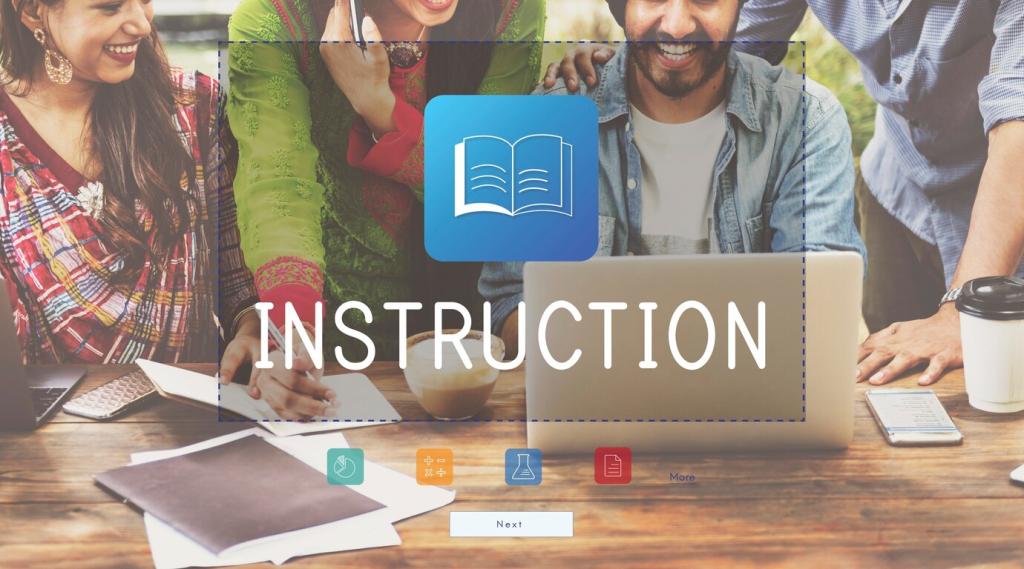
Level Up Learning: Gamification in IT Learning Systems
Chosen theme: Gamification in IT Learning Systems. Discover how points, missions, and meaningful feedback transform developer education into an engaging journey that builds real skills. Join us, share your experiences, and subscribe for fresh, practical insights each week.
Intrinsic Motivation and Mastery
Great gamification nudges autonomy, competence, and relatedness—key pillars of intrinsic motivation. Learners choose meaningful paths, earn credible signals of progress, and feel connected to a community of practice. Tell us what genuinely motivates you to keep learning.
Flow and Focused Practice
Well-calibrated challenges create flow: clear goals, immediate feedback, and difficulty that grows with skill. In IT learning systems, this looks like adaptive labs, timely hints, and skill-based missions that keep your attention centered on purposeful practice.
A Story from a Cloud Bootcamp
One cohort reframed labs as cooperative quests. Completion rates rose, but more importantly, reflections revealed deeper troubleshooting habits. Students shared fixes like trading rare cards—except the cards were runbooks. Comment with your favorite quest idea for a complex topic.

Story Arcs that Mirror Engineering Work
Frame a sprint narrative: stabilize a flaky service, harden authentication, and ship a feature under load. Each chapter introduces new constraints, like limited observability or budgeted compute. Invite readers to propose a cliffhanger challenge for the next release.
Branching Scenarios with Trade‑Offs
Offer decisions that matter: prioritize latency or cost, automate now or document first. Each branch reveals different debugging paths and postmortems. This builds judgment, not just button‑clicking. Comment which trade‑off your team debates most often.
Boss Battles as Incident Drills
Turn capstone challenges into on-call simulations: ambiguous alerts, noisy dashboards, and a ticking SLA. Reward calm triage, clear communication, and rollback strategy. Share your incident response checklist to help others level up their crisis playbooks.

Assessment, Analytics, and Skill Trees
Mastery-Based Progression, Not Seat Time
Unlock levels by demonstrating skills repeatedly, in varied contexts, with archived evidence. Replace timers with robust rubrics. Learners advance when they can explain, apply, and troubleshoot—hallmarks of true competence rather than superficial completion.
Telemetry that Respects Learners
Track signals that inform teaching: error patterns, hint usage, retry sequences, and peer feedback density. Avoid vanity metrics. Use anonymized cohorts to refine activities while keeping individual learning journeys private and respected.
Skill Trees as Roadmaps
Visualize dependencies: containers before orchestration, indexing before sharding, identity before authorization. Skill trees clarify next steps and prerequisites. Want a printable example? Subscribe, and we’ll send a customizable template for your team’s stack.

Introduce rest mechanics, streak forgiveness, and reflective checkpoints. Reward thoughtful retries and collaboration. Make failure safe and informative. Tell us how you design recovery moments so learners return energized rather than exhausted.
Inclusive, Ethical, and Sustainable Engagement


From Pilot to Rollout: A Practical Playbook
Pick one competency, two mechanics, and clear success metrics. Recruit a small cohort, observe friction closely, and run weekly retros. Share your pilot goal in the comments and we’ll suggest metrics aligned with your outcomes.
From Pilot to Rollout: A Practical Playbook
Leverage LMS plugins, LTI for interoperability, and xAPI for event tracking. Connect CI logs, code sandboxes, and observability tools to create authentic challenges. Subscribe for our integration checklist tailored to common engineering stacks.
